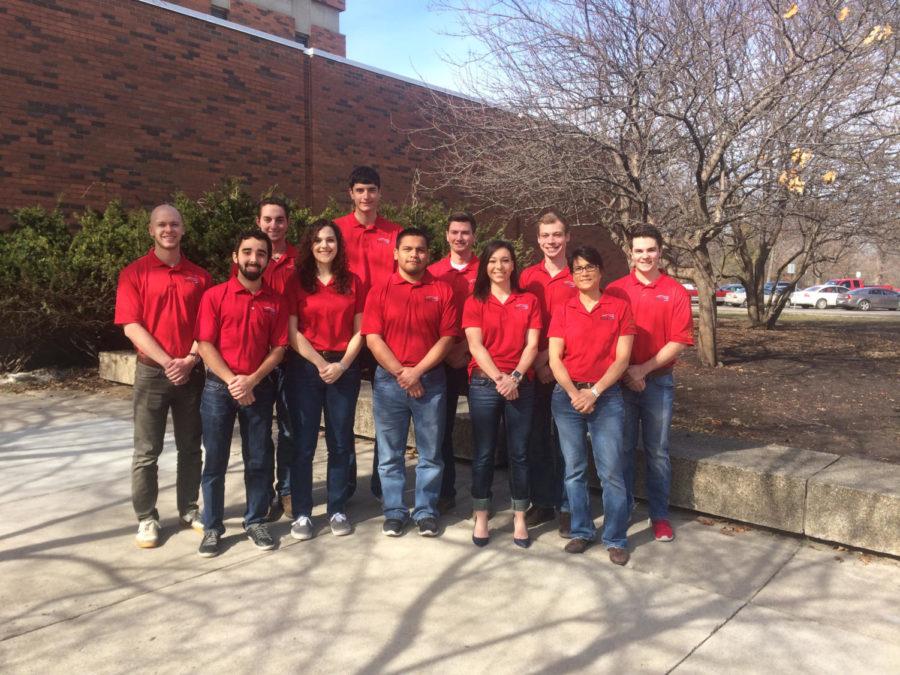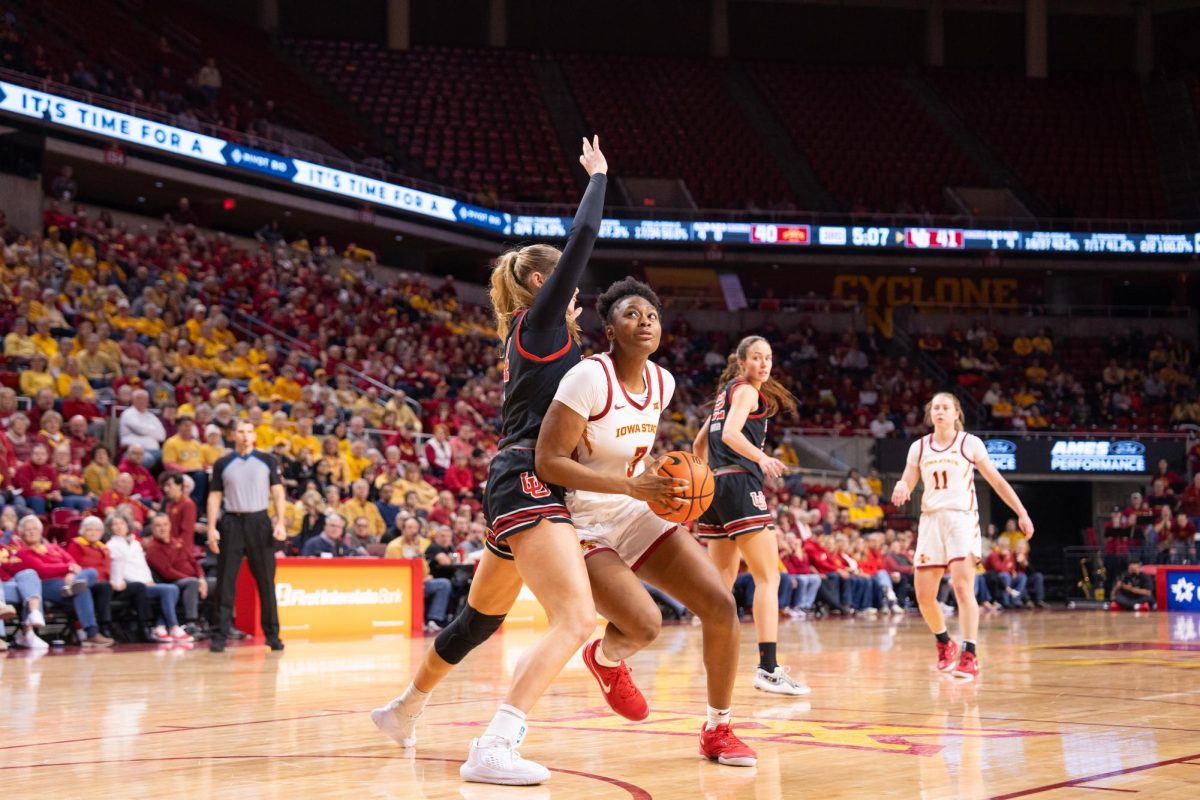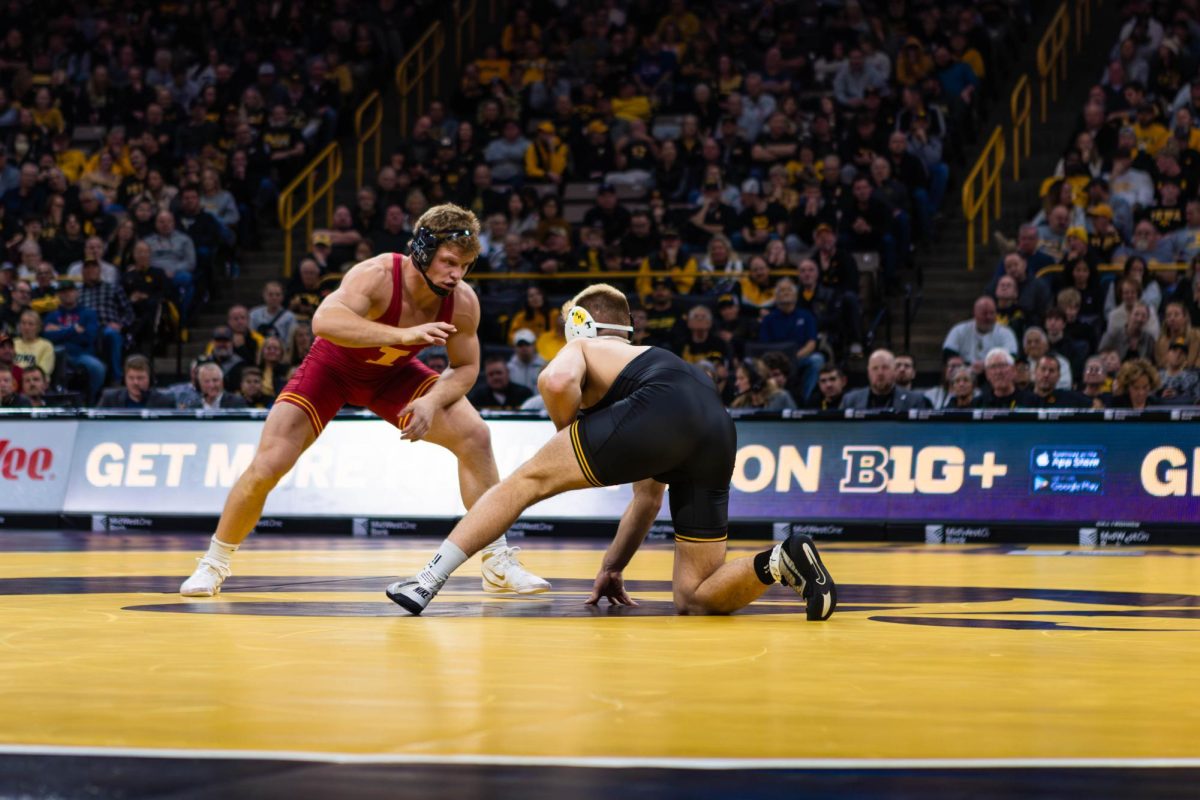Green team gears up in preparation for energy challenge
Courtesy of the Green Energy Challenge Team
The Green Energy Challenge team is made up of members from Iowa State’s NECA student chapter. The team will be competing this fall in hopes of placing in the top three again. Last year, the NECA student chapter as a whole won the NECA student chapter of the year award.
February 23, 2016
Students in the National Electrical Contractors Association chapter at Iowa State will have the opportunity to participate in a national event to show off their skill in the industrial industry.
A 12-person team is competing in the Green Energy Challenge, which has two parts. The spring component includes a 50-page proposal to be submitted in April. In the fall, if the proposal makes the top three nationwide, the team can then take some of the members to Boston to further compete through the NECA’s student chapter at Iowa State.
NECA has a student chapter that allows students from all majors to gain experience from contractors, designers and other professionals who come to the monthly meetings to talk with students.
The NECA student chapter helps students learn more about the electrical contracting industry by invaluable contact with local professionals. The organization also hosts social events and conducts tours of job sites every year.
One event the NECA student chapter participates in every year is the Green Energy Challenge sponsored by ELECTRI International.
Iowa State’s NECA chapter has participated in the Green Energy Challenge for the last seven years.
In 2011, under the guidance of coach Beth Hartmann, senior lecturer in construction engineering, Iowa State’s Green Energy Challenge team saw a fifth place win at the competition. In 2012, the team placed first for its written proposal and took third overall. The team then traveled to the NECA National Convention in Las Vegas for its oral presentation.
The team competed in the NECA National Convention in Washington, D.C., in 2013, and again took first for its written proposal and third overall. In 2014, the team placed second in the written proposal and first overall at the convention in Chicago.
In 2015, the team placed first in the written proposal and won first overall at the convention in San Francisco.
Maggie Holt, Iowa State’s NECA student chapter president and senior in construction engineering, received the Best Individual Presenter Award at the competition in 2014. Britta Sortland, Iowa State’s NECA vice president and senior in civil engineering was chosen by the ELECTRI jury as best presenter at the 2015 competition.
“Students really learn public speaking and written communication skills,” Hartmann said about the Green Energy Challenge.
This year, the Green Energy Challenge teams have been asked to design an energy upgrade for a K-12 school facility in their community.
The team received its demo topic in October and started talking to the Ames school district to talk to owners and get quotes on materials within the building that they would be creating a proposal for at the 2016 competition in the fall.
The team of 12 has been conducting energy analysis on how the building performs and coming up with different solutions to make it perform in a more energy efficient way.
One of the issues the team plans to address for its chosen school is the windows.
“[They] don’t have any shades on their windows, so they get a lot of sunlight that comes in, which can be good, but it also means they have a ton of excess glare and light in their rooms,” Holt said. “We’re going to work with them on choosing shades and daylight sensors to help them.”
In the past, the teams have been challenged to address issues within buildings on the ISU campus. Their analysis of the administrative services building was even considered and implemented in order to improve the efficiency of the building.
“Last year for the administrative services building we found out that a lot of the light fixtures weren’t working very well, so the lighting in the building was very spotty and energy inefficient,” Holt said. “They made some of the changes we proposed not exactly the way we proposed them, but because we were looking into if they discovered some of these problems.”
Hartmann, the organization’s faculty adviser, has been working with the student chapter for seven years and said it’s the direct relationships students make with industry professionals and companies that allow them to grow and even get job opportunities.
“Students with this chapter are not only eligible for NECA scholarships, but they are also finding full-time job opportunities from our contacts,” Hartmann said.
Holt also agrees that through the work the students do with the NECA student chapter and the Green Energy Challenge, job offers are easier to find.
“These companies really like seeing this type of extracurricular activity because it is very much real-world experience,” Holt said. “The students that participate in the Green Energy Challenge definitely have a leg up when it comes to interviewing and talking to employers.”
However, by joining the NECA student chapter, which can be done through the student organization homepage at iastate.edu, not all members are able to participate in the Green Energy Challenge.
An application and interview process must take place before students are selected for being a part of the Green Energy Challenge team.
One thing that’s encouraged is to apply to be a part of the Green Energy Challenge team even if students are new to the NECA student chapter and have little experience.
Holt remembers when she was first on the Green Energy Challenge team and when she had the least amount of experience.
“I worked with the older students … that’s one of the really great things about the competition because we have a mix of younger students and older students and we mentor each other,” Holt said.
Each sub team has a sophomore who they guide and mentor during the challenge process.
Holt also recognizes the Green Energy Challenge as being helpful in allowing students to apply what they learn in classes to a real-world problem and practical application.
“This competition gives me an opportunity to work with people, understand how those types of relationships work, know who to talk to when I have questions and figure out how to solve problems that actually exist,” Holt said.







